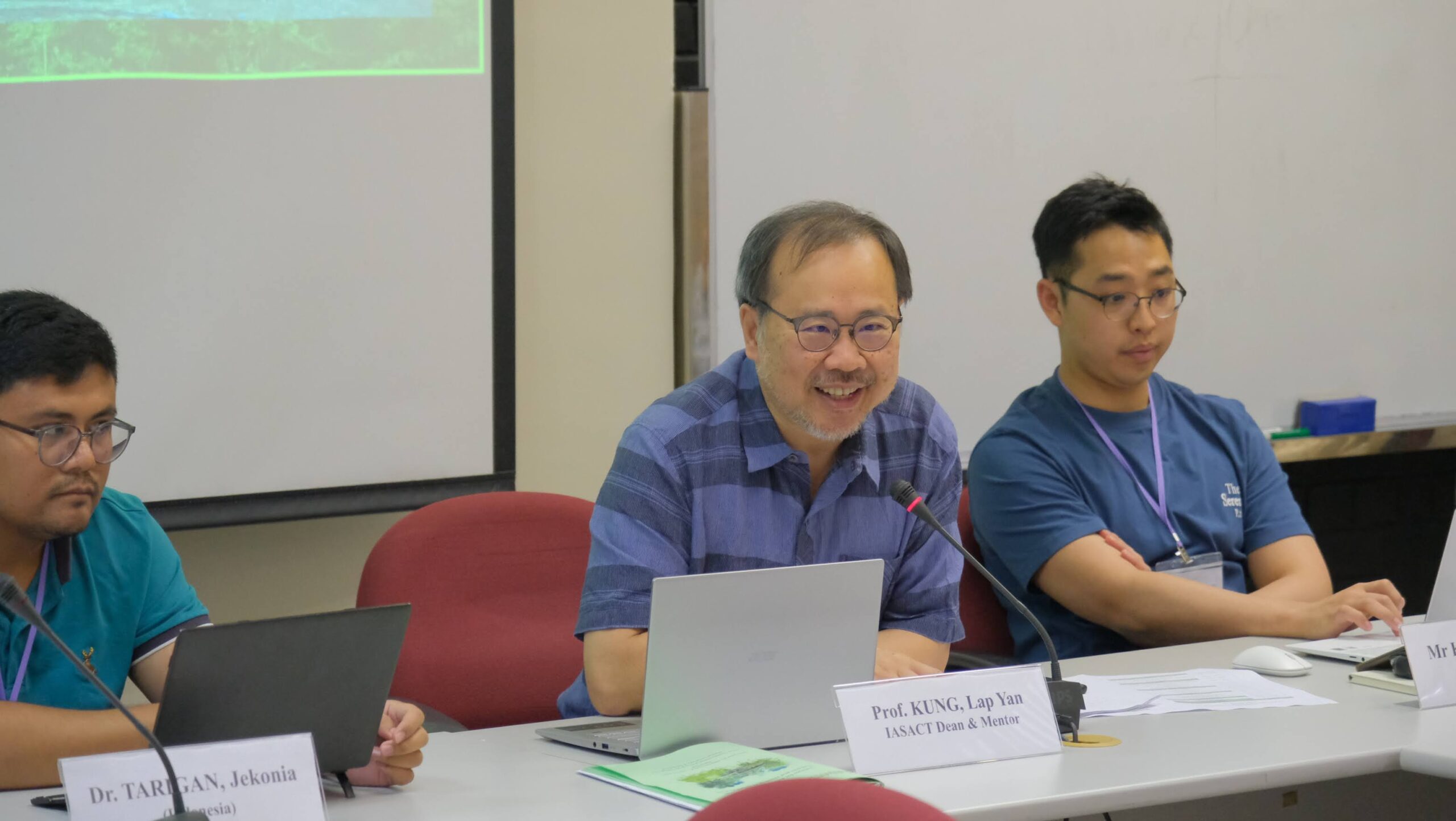A Claypot of Theologies, Cultures, and Cuisines
“Besides the lectures and the daily scholars’ presentations we had to attend, the kitchen was a space in which we came to know each other personally and in a much deeper way,” Dr. Yoshihisa Amae (Yoshi) of Waseda University recalled his experience at the Institute for Advanced Study in Asian Cultures and Theologies (IASACT) 2023.
A sumptuous summer
After a hiatus of three years due to the pandemic, the United Board was able to deliver IASACT in-person again. IASACT 2023 was held from 15 June to 15 July at the Divinity School of Chung Chi College at the Chinese University of Hong Kong (CUHK). The month-long residential program was a melting pot of faiths, cultures, and disciplines. Academic and social activities opened new doors to the 15 scholars from 14 institutions in 11 countries and regions to stimulate their thoughts and enhance their research skills.
This year’s theme “Heritage in Asia” has encouraged the young scholars to rethink and refine their own research interests. Mr. Suwanapech Kongsatja (Kong), a law graduate from Thailand who is now studying for a PhD at the University of Edinburgh, saw the possibility of extending his scope of study from European legal theory to Thai legal modernity. He was appreciative of the disruptive meeting of minds and disciplines at IASACT 2023 and said, “IASACT provides me with an opportunity to make use of other people’s discourses to nourish my own discourse. It made me rethink what I’m doing.”
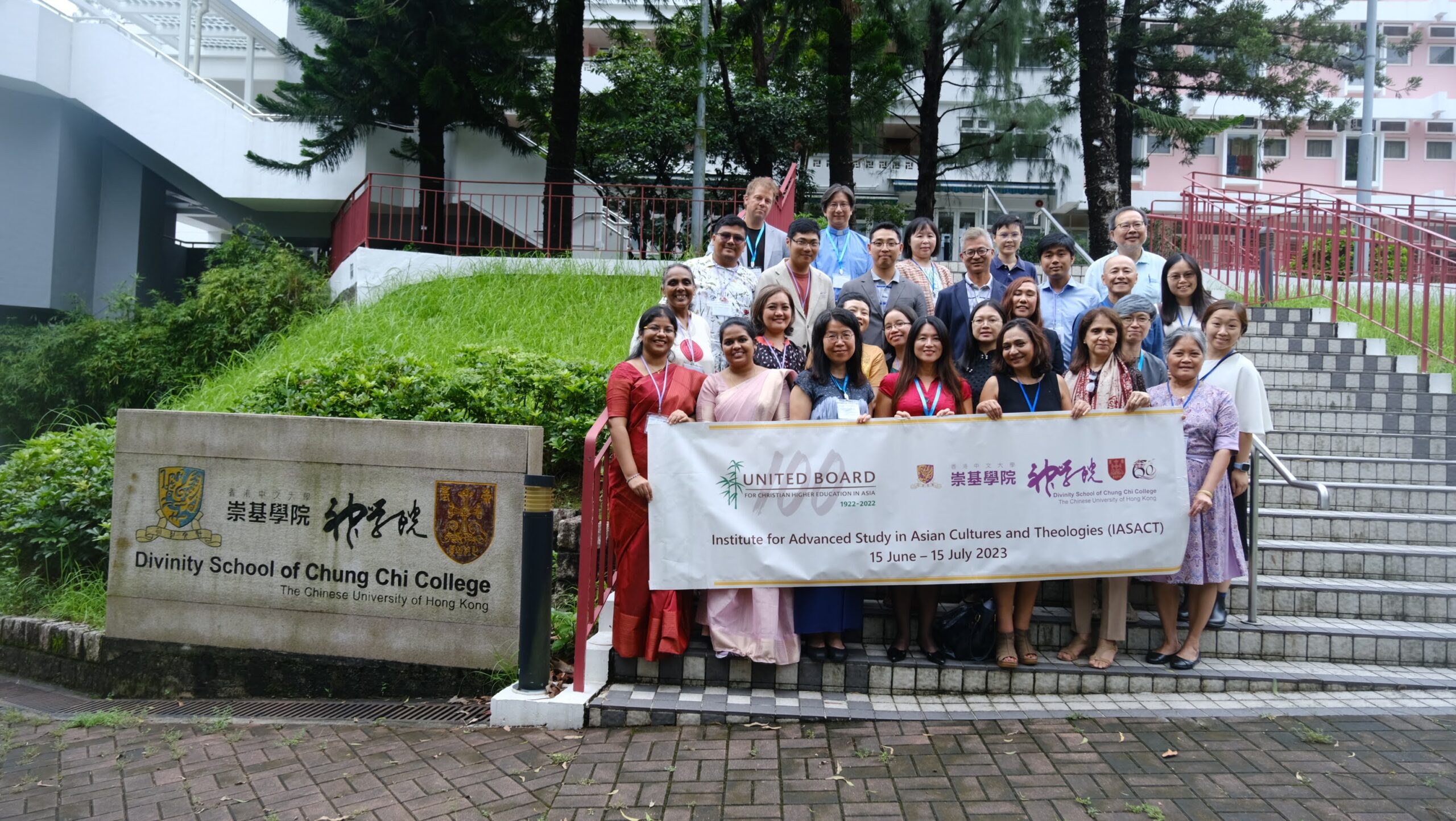
IASACT 2023 in front of the Divinity School
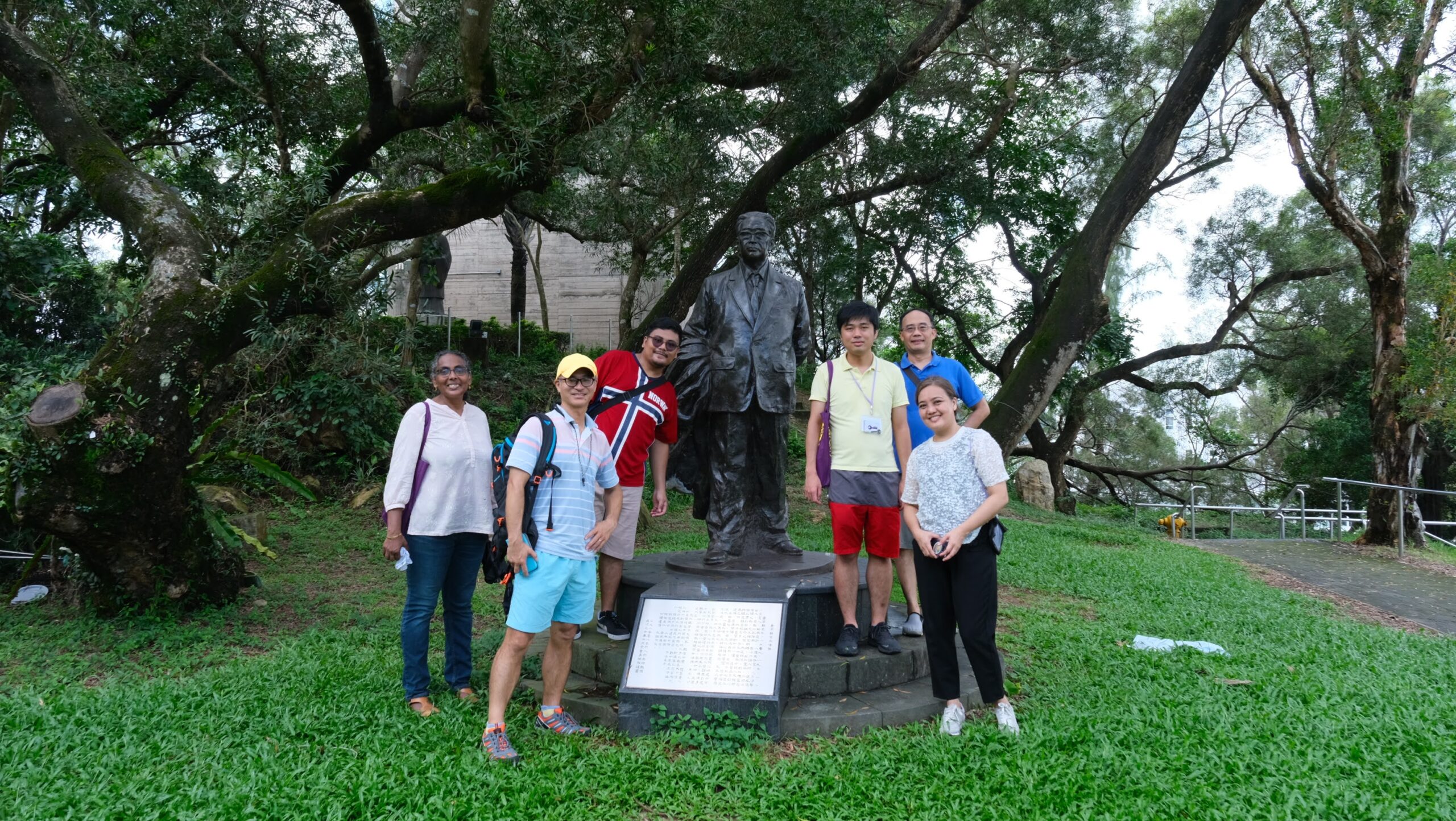
Yoshi, Kong and Dr. Andrew Tam, a philosopher and alumnus of CUHK, shared the same floor of the dormitory at the Divinity School and developed a deeper rapport not only by their physical proximity but also by their enjoyment of the communal meals they had together at the dormitory and off campus.
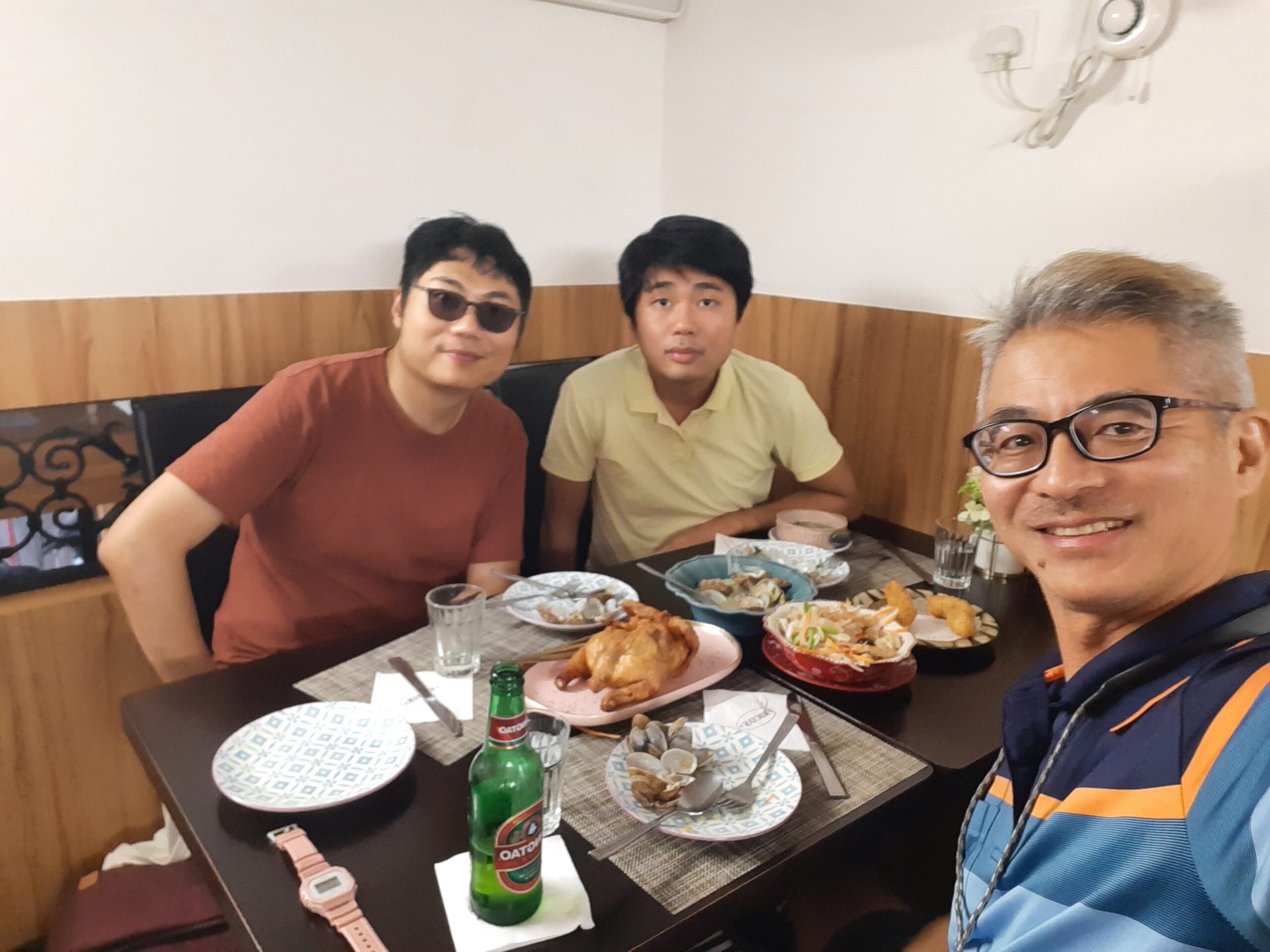
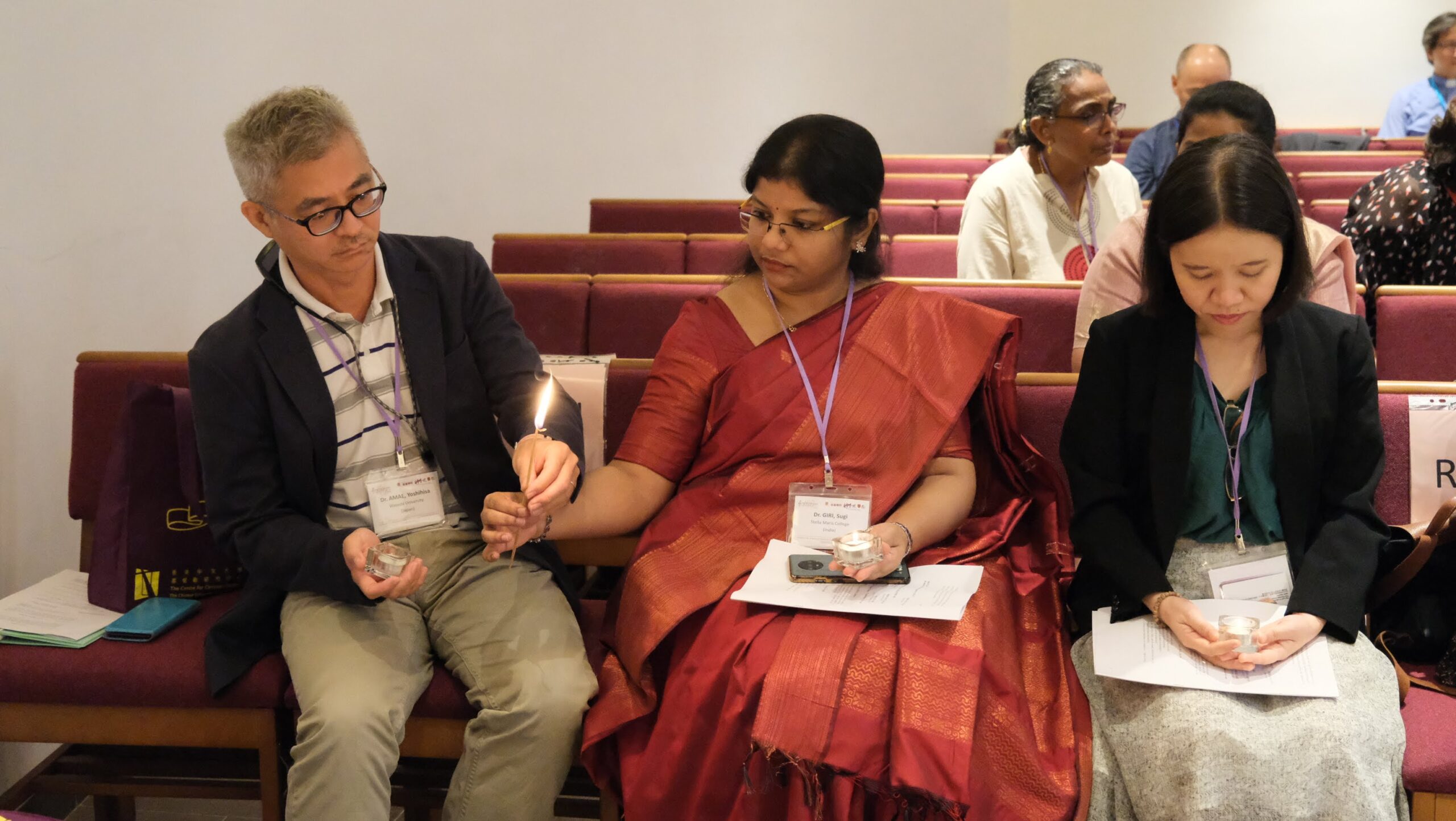
A buffet of budding scholars cum buddies
For two decades, IASACT has been enabling early-career researchers to come together and form a supportive learning community. It is a multi-disciplinary program where scholars from different disciplines bring their own perspectives to work on the same theme. Yoshi is a political scientist who specializes on Japan-Taiwan relations. But his stay in Hong Kong had made him decide to do a comparative study of the two postcolonial societies of Hong Kong and Taiwan and investigate the politics of colonial nostalgia.
Andrew was intent on working out how eastern theology may contribute to the discussions of western philosophy. Armed with Occam’s Razor, he often played devil’s advocate and challenged his fellow participants in conversations and presentations. Andrew’s contentiousness was an education in itself for Kong, as he has learned to put aside what he’d accepted in order to imagine the unimaginable. In his own words, “I have to unlearn before I can relearn.”
Andrew observed that novices and veterans in the program had something to learn from each other. He cited the example of Dr. Stephen On, a political scientist from Taiwan. While Andrew took inspiration from Stephen’s more traditional scholarship, Stephen got a little help from the younger scholar on the use of PowerPoints in presentation.
Stephen shared the same floor and the communal meals there, which provided a much welcome alternative to canteen food. But at first the kitchen was only sparsely equipped. The gang finally borrowed a rice cooker from a resident there and the kitchen literally heated up. As Yoshi put it, “Securing a rice cooker was our first important achievement!”
Chefs and sous-chefs
Not everyone in the program was a regular at their dinner table, but they all knew the others very well from the packed schedule and frequent interactions in the program. Yoshi would prefer the physical living arrangement to allow for more social interactions, but he also noted that he’d never laughed so much during those four weeks.
Though the participants came from a diversity of backgrounds and each was pursuing his/her own research interest, Yoshi, Kong and Andrew were able to make new friends and have conversations with everyone. The program was structured and led in a way that can accommodate diverse specialities and approaches. Yoshi realized that he had something to learn from everyone. Andrew agreed, “This program empowers my interdisciplinary and communication skills.”
They were in particular impressed by the grace and thoughtfulness evinced by Prof. Lap-yan Kung, dean and mentor of IASACT. Prof. Jeane Peracullo, another IASACT mentor, was most effective and caring in her mentoring and management of the projects and presentations. Combining intellectual focus with a freedom to explore and experiment, Professor Kung and Professor Peracullo encouraged curiosity and exchange. In Yoshi’s words, “The IASACT experience was an invitation to think of, to envision, and to try out new things.”
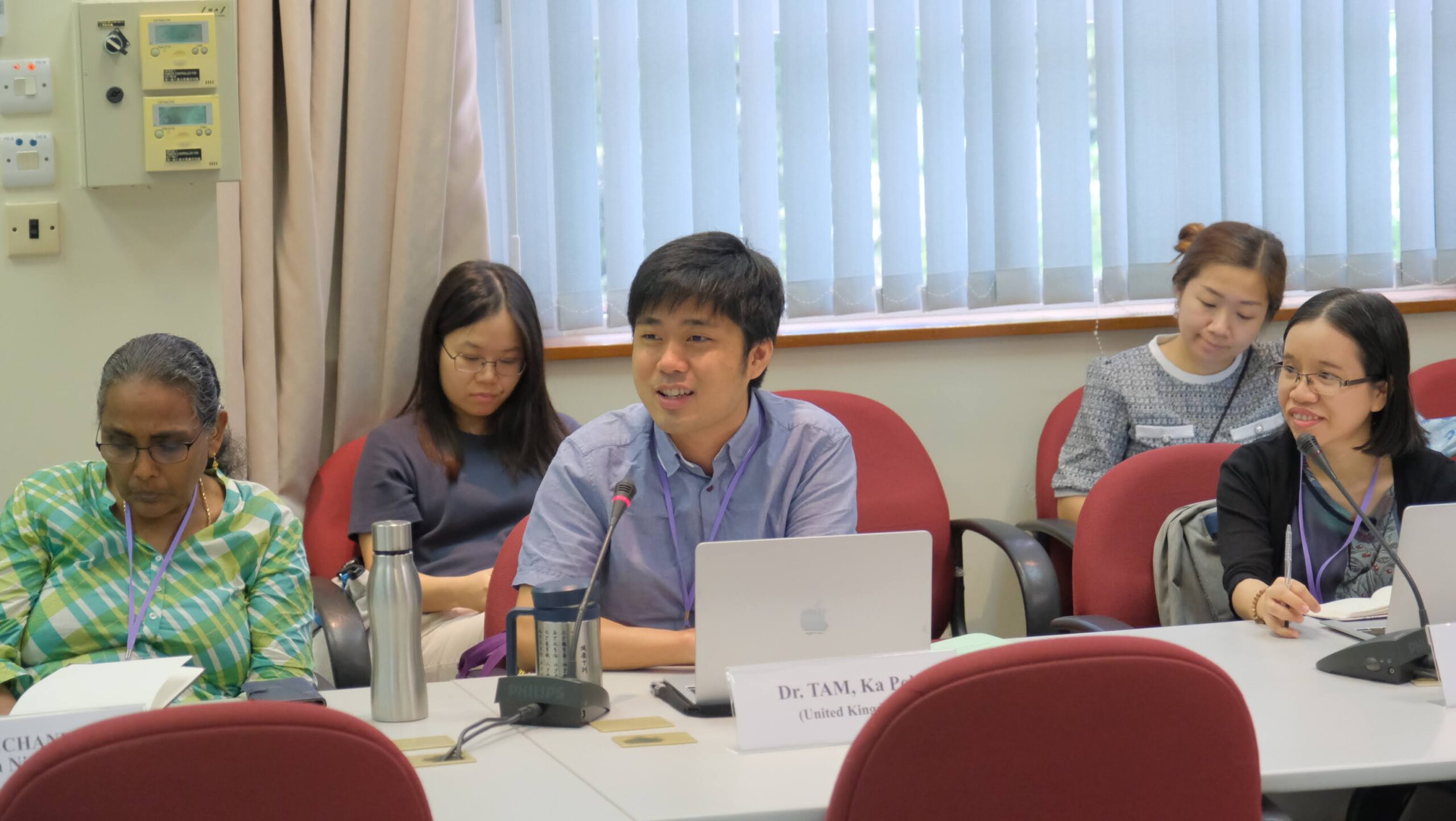
Savoring the flavor of each moment
Yoshi, Kong and Andrew savored every moment during those four weeks of scorching heat in Sha Tin. But to Yoshi, a veteran field researcher, his IASACT experience really came alive when he got off at Tai Po Market and saw the great varieties of fresh vegetables, seafood and poultry on offer there.
They began to frequent the market and fell into an unspoken division of labor—buying different food from different sections of the market, cooking, and doing the dishes. Kong observed that they had been casual but organized and equal in contribution. His Thai-style specialties—sea bass in lemon and garlic, and spicy minced pork—had left Yoshi begging for more and would definitely remain in his tasting notes for a long time.
Conversations began to flow in all directions after the meals. They would talk about their own research, families, current affairs, dreams and follies. No topic was off-limit. Though Andrew only contributed to the menu sparingly with his Portuguese chicken, he more than made up for that with his after-dinner stories of intercultural dialogues and influences behind specific ethnic cuisines.
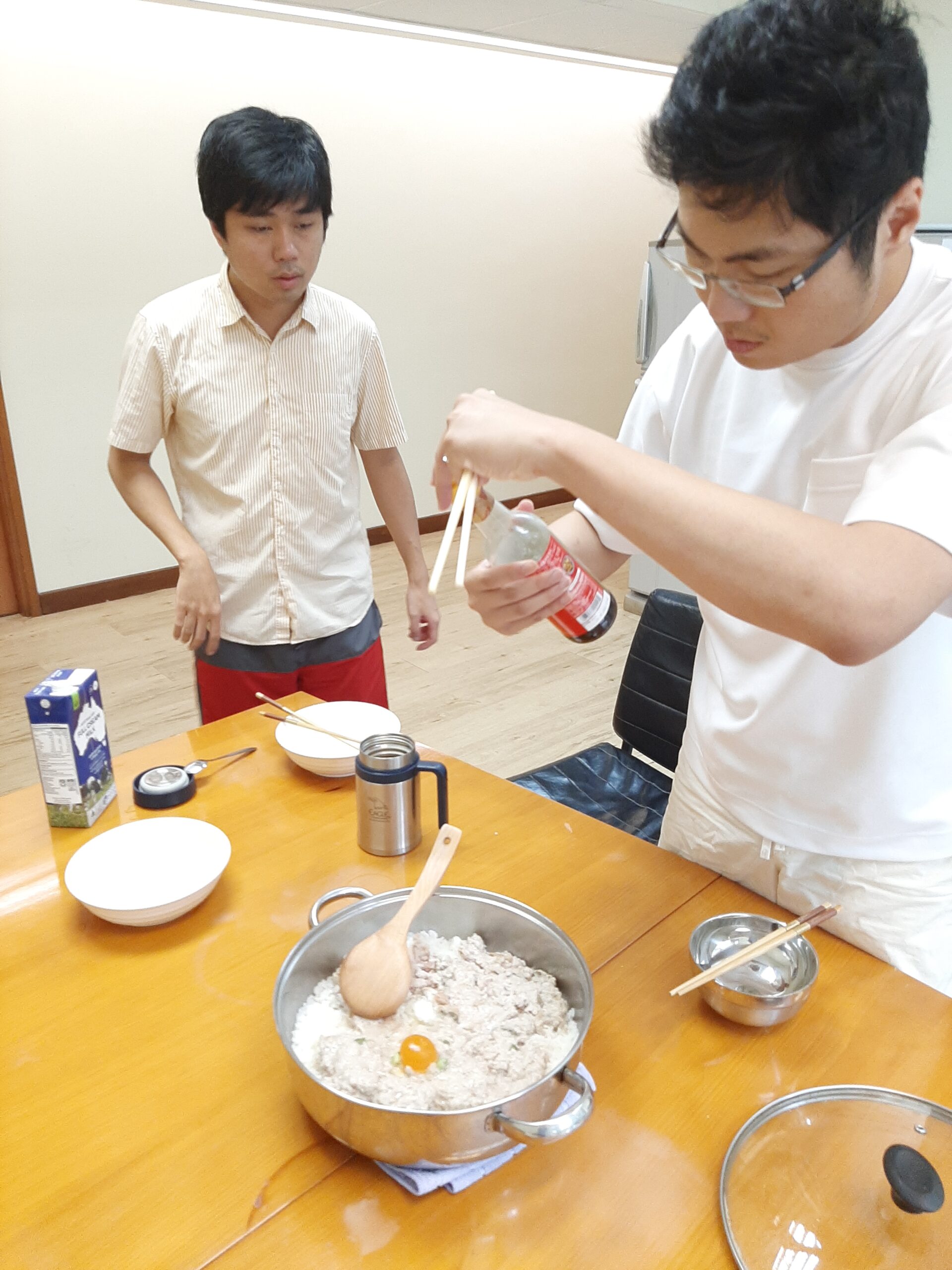
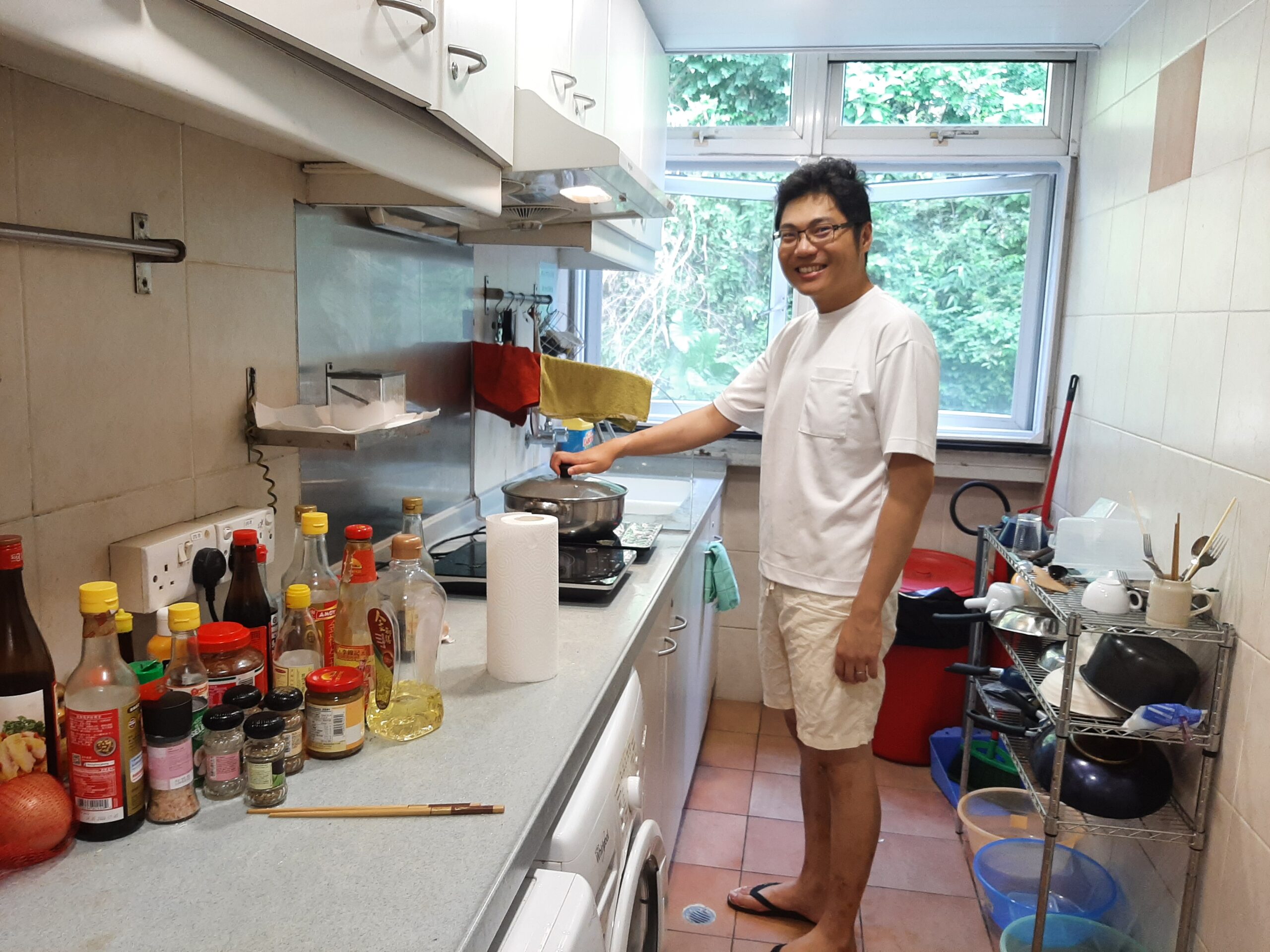
Kong’s all-time favorite dish is claypot rice, an ethnic Cantonese delicacy whose endless permutations of ingredients and subtlety in the manner of preparation never fail to delight the taste buds and satiate the guts. Without sounding frivolous, IASACT is an intellectual claypot where raw and not-so-raw talent “cook up” something for themselves by mixing well with other talent. Both claypots demonstrate that the whole can be greater than the sum of its parts. Kong has not forgotten about one ingredient, however: “If IASACT is a dish, Andrew is the wine or spice that kicks up all the flavors of the ingredients.”
Yoshi, Kong and Andrew, like their fellow IASACT scholars, have moved on in their scholarly pursuits. The intellectual stimulations and friendships forged at IASACT 2023 will, however, follow them wherever they go.
